200 Years of the World’s First Cave Guiding Service
The cave guide profession is so rare that it could be compared to the rarity of finding a pink diamond. Around the world, there are only a few hundred professional cave guides, fifty of them in Slovenia’s Postojna Cave alone. A coincidence? Not really. The world’s first cave guiding service was established right here, in Postojna Cave, exactly 200 years ago. Ever since, our cave guiding service has served as a paragon of excellent cave tour guidance and logistics.
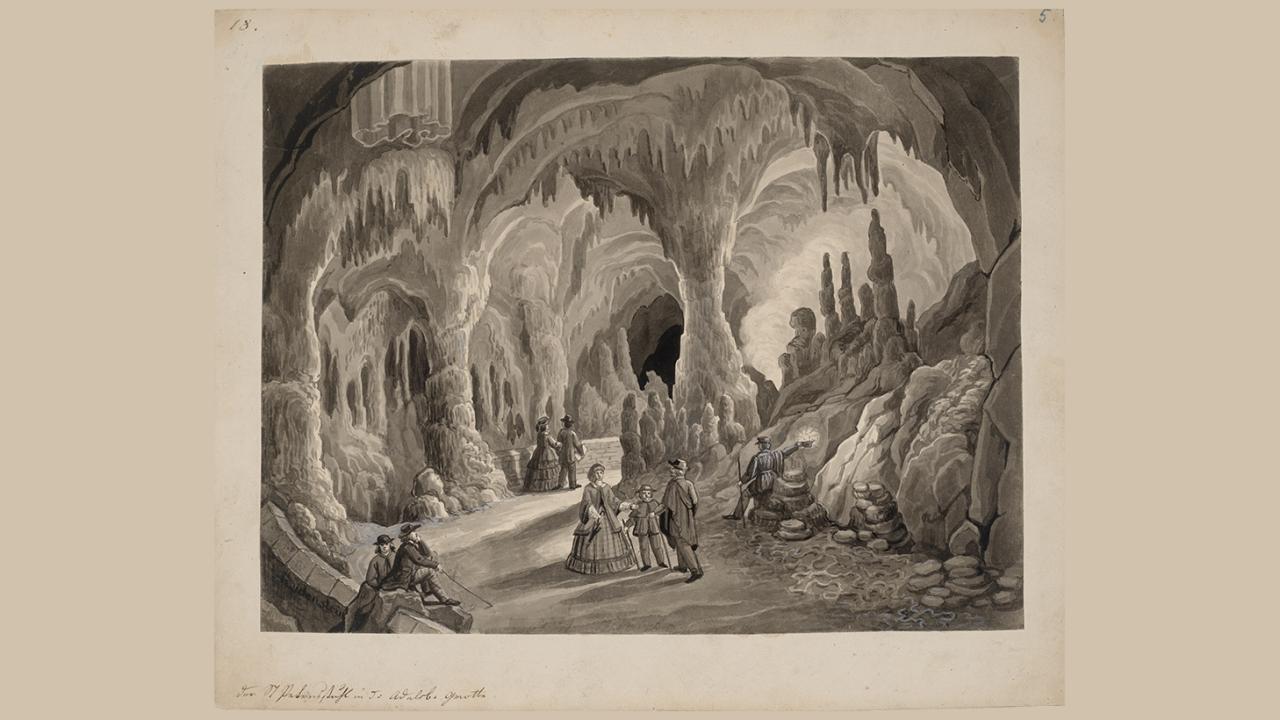

The first Postojna Cave ‘guides’ were brave locals who guided curious travellers to the cave and around it like Ariadne’s thread. These were men who – even before the cave was officially opened as a show cave – illuminated the cave for visitors with torches, straw and candles. They were uneducated and illiterate people who could speak nothing but Slovenian, so at the time, there was no such thing as professional guiding services.
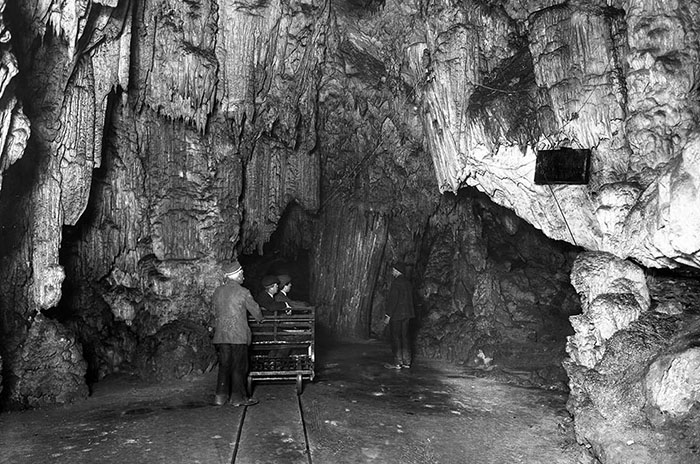
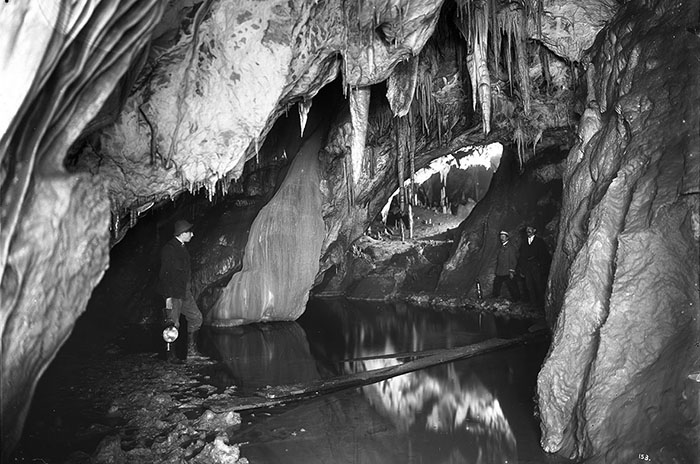
The Glory of Postojna Cave Called for More
The discovery of its most beautiful inner parts and its official opening in 1818made Postojna Cave famous all over Europe. During the first few years, visitors from Tyrol, Czechia, Hungary, Italy, Germany, as well as Switzerland, France, England, Denmark, the Netherlands and Russia rushed over to see this natural wonder. Naturally, the exceptional interest and the visitors who spoke foreign languages called for a number of changes.
This led to the establishment of the first Cave Commission, which was in charge of appointing and paying cave guides, cave maintenance, lighting, keeping a visitor checklist and setting the cave entrance fee.
On 13 April 1824, the Cave Commission adopted the first cave statute and officially appointed the first cave guides. The first sworn cave guides and cave overseers were Franz Šibenik, who was “good at reading and writing”, and Josip Vesel “because he could speak German”.
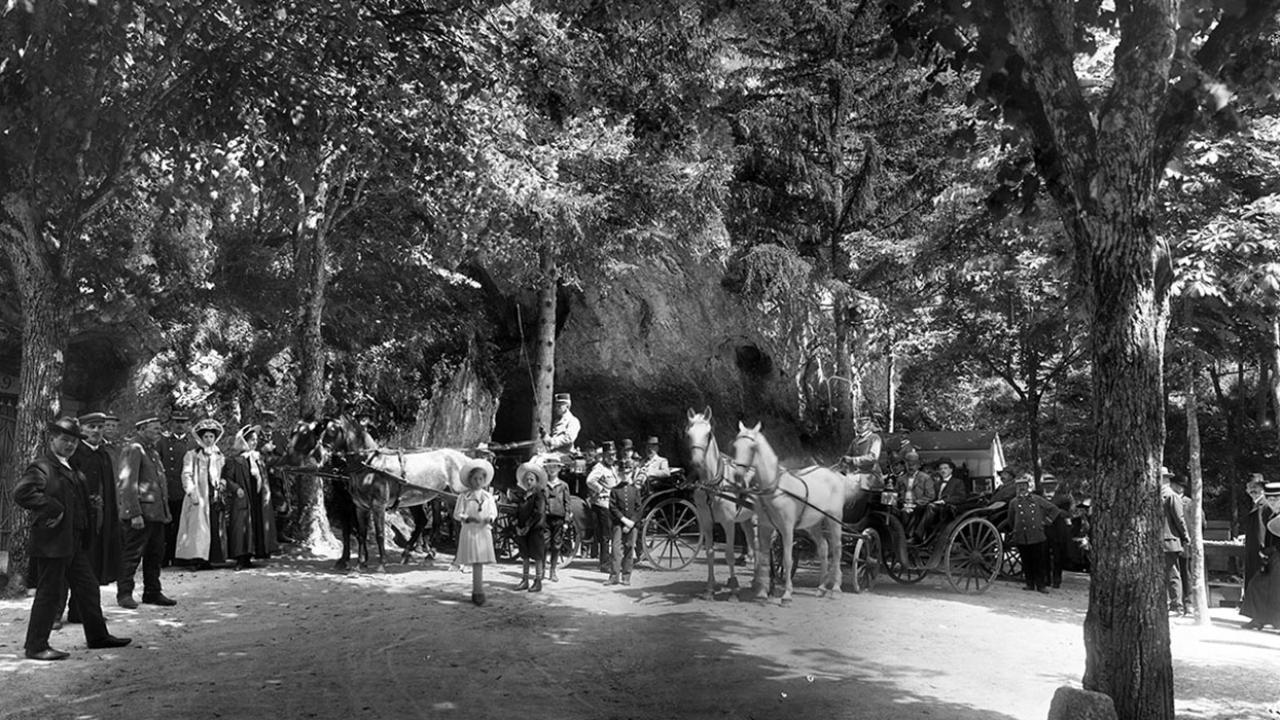

Guided Tours in the Middle of the Night
The earliest guided tours of Postojna Cave were quite different from the tours known today. The visitors only saw the first parts of the cave, they walked the whole way, and because the tour was tiring, lasting up to four hours, they had some bread and wine halfway through, in the area called the Great Mountain.
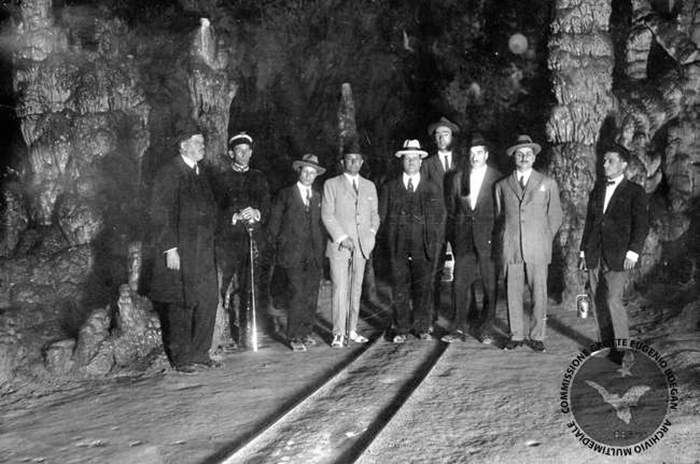
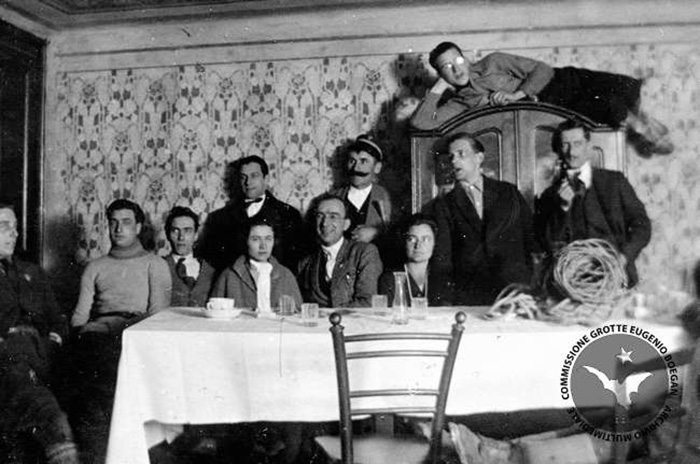
The guides/lamplighters had gone into the cave earlier to prepare the lighting and in the mean-time, the visitors had a look at the olms in a bottle outside the entrance, and after the tour they could buy stalactites and stalagmites from the stalls. These days, this is totally unacceptable and goes against our efforts to preserve this one-of-a-kind habitat.
In 1859, the Cave Commission issued extremely detailed instructions for cave guides and lamplighters, stating that visiting Postojna Cave without a qualified guide was not possible. The instructions set out the rules regarding illumination, emphasised that touching the cave formations was forbidden and specified the cave tour price.
According to Article 1, which was particularly interesting, visitors could visit Postojna Cave virtually any time they wanted: “Visitors can tour the cave at any time – day or night. After they pay the entrance fee and the illumination fee to the cashier, the tour can start. The guides are strictly forbidden from asking for any payment or tips; they are, however, allowed to accept it.”
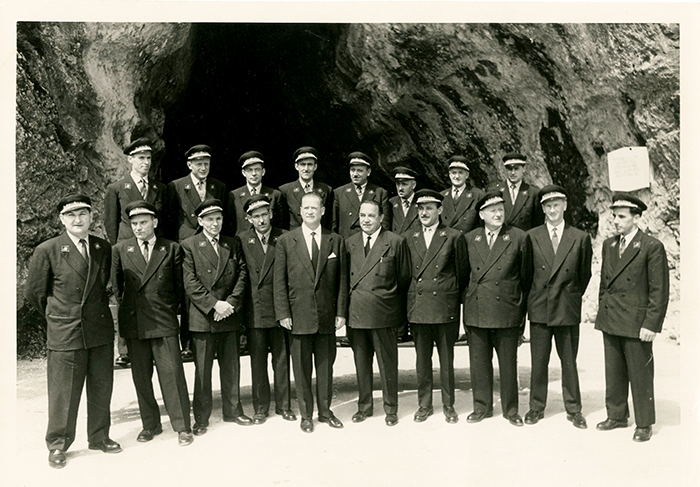
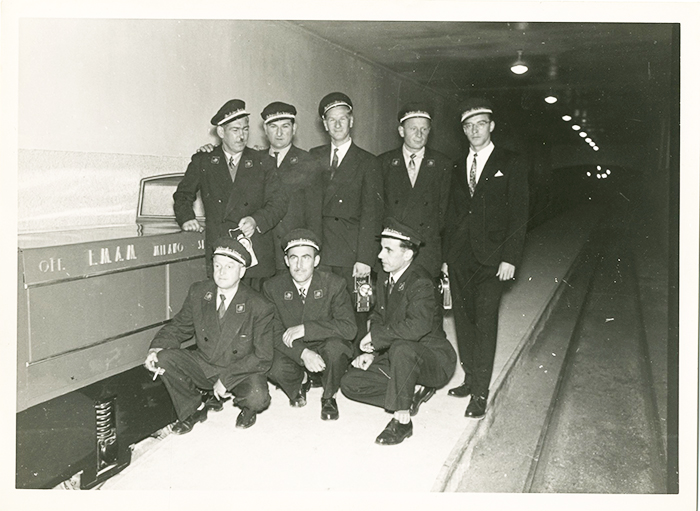
Knowledgeable and Skilled Polyglots
Members of the Postojna Cave Guiding Service team have always been highly respected. Not just anyone could become a Postojna Cave tour guide; only specially selected individuals, open to new knowledge, were eligible.
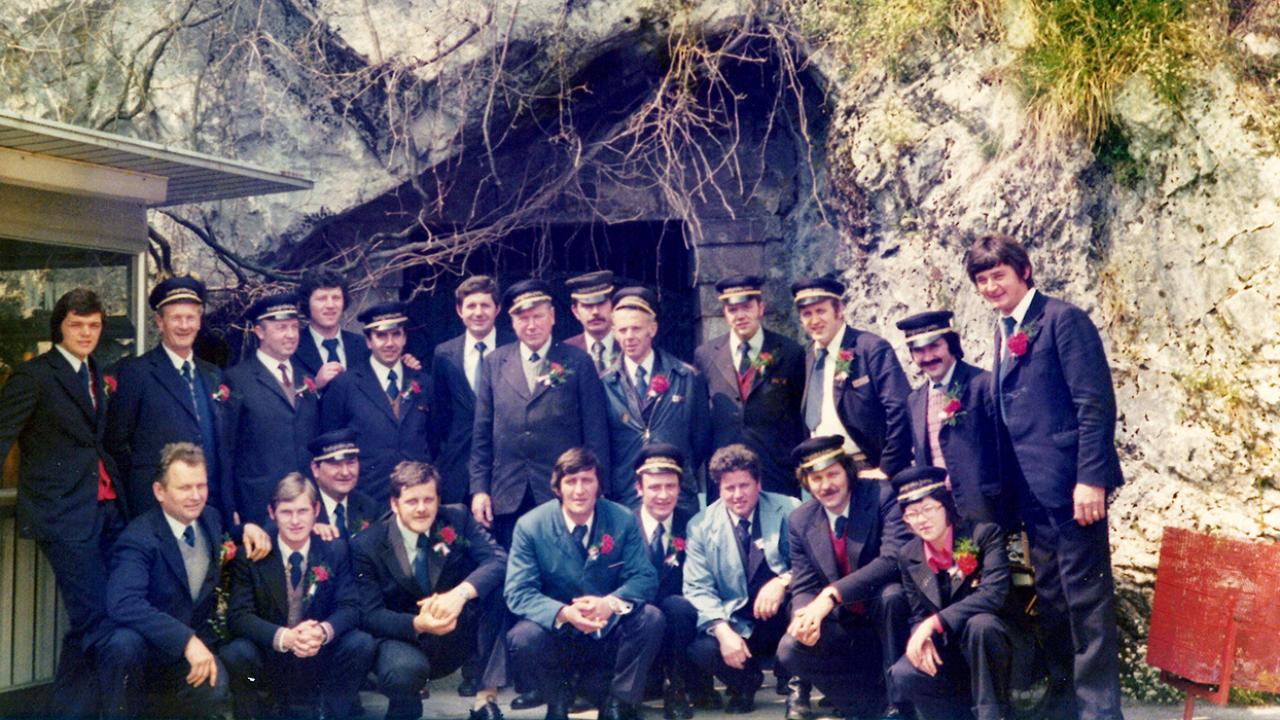

While the first guides were those who knew at least “a bit of German”, the present-day Postojna Cave tour guides have a wealth of different knowledge and are veritable polyglots. The team of Postojna Cave guides includes a maths teacher, a history teacher, an electrical engineer, an IT specialist, multimedia specialists, and since 2013, biologists, who take care of the cave-dwelling animals and are employed by Postojna Cave on a full-time basis. All of them are licensed cave guides, have all the necessary qualifications, and many of them are cavers and cave rescuers.
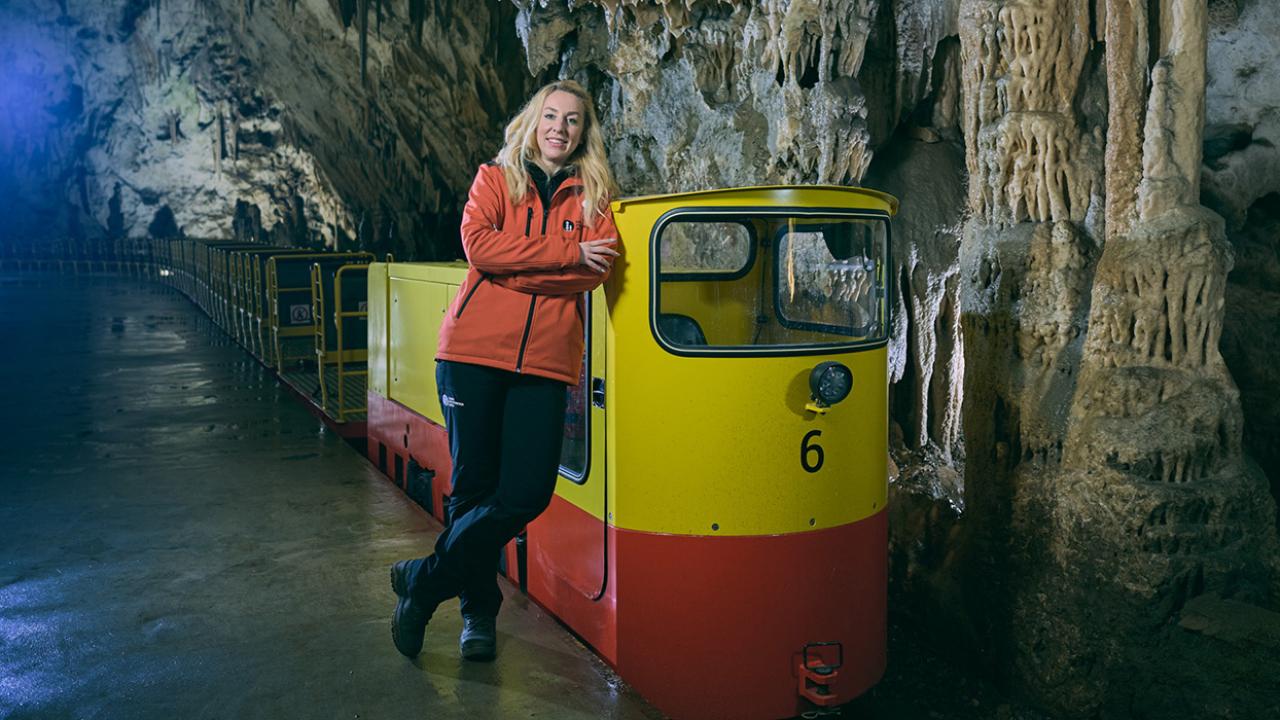

Initially, all the Postojna Cave tour guides were men. It was not until 150 years after the cave guiding service was established that the first female cave guide was accepted to the team. The first female cave guide was Ines Černe, née Cucek, who guided visitors in German, Serbo-Croatian and Slovenian. Today, the female/male guide ratio is almost 1:2. What’s more, 200 years later, during this milestone year, Postojna Cave got its first female cave train driver – Anja Škarabot, who thus made her mark in the history of Postojna Cave.
In addition to their native Slovenian language, Postojna Cave tour guides speak an average of at least three foreign languages. The biggest polyglot among our cave guides speaks five foreign languages fluently: English, Italian, Croatian, Spanish and Serbian. In Postojna Cave, you can choose from daily guided tours in Slovenian, English, Italian and German, and for VIP cave tours, the additional available language options include French, Croatian, Spanish and even Polish.
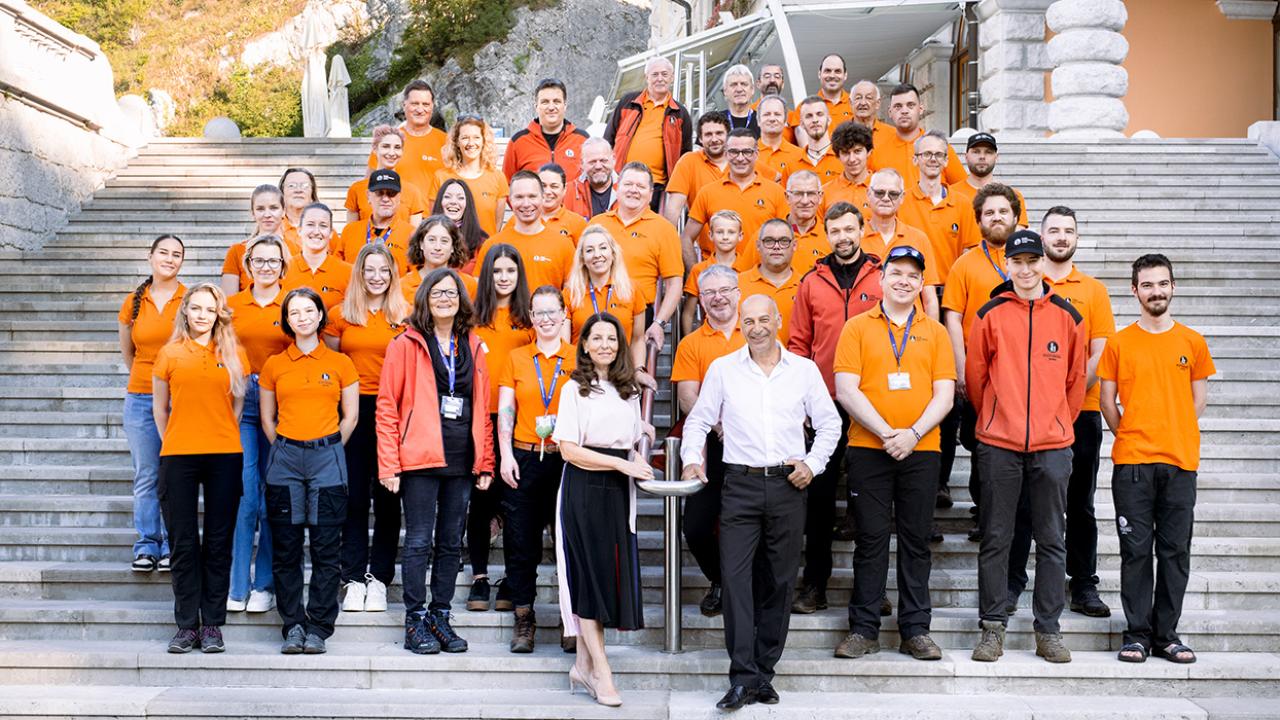

Always on the Heart’s Side
According to the notes included in the Cave Commission’s rules, the fact that clothing contributes to one’s reputation and credibility was recognised in September 1852, when a uniform cave guide suit was introduced. It was modelled on the two-piece miners’ uniform with a brimmed cap. In the 1860s, the cave guides were given their first suits consisting of trousers with a crease, a jacket and a shirt with a tie. In the 1990s, the smart suits were replaced by the sporty and chic uniforms that all guides wear with pride. Today, you can easily recognise a Postojna Cave guide by an orange windbreaker that features the Postojna Cave symbol – a stalagmite called the Brilliant – which is on the heart’s side of the chest.
Despite all the changes that both the cave and the cave guiding service have undergone under different countries and different companies that managed the cave, the pride of working at Postojna Cave has remained a constant.
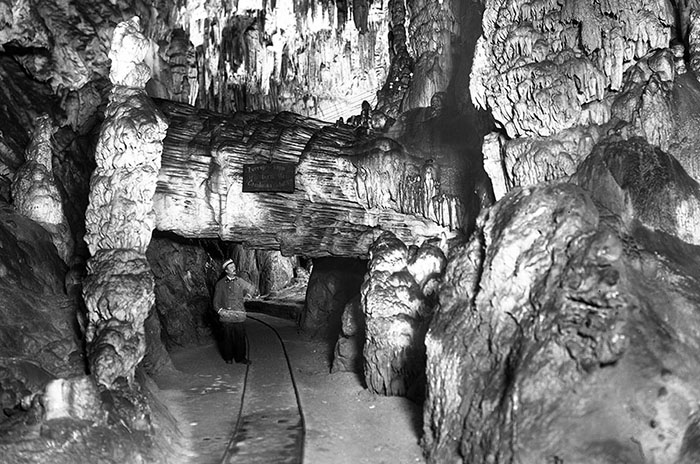
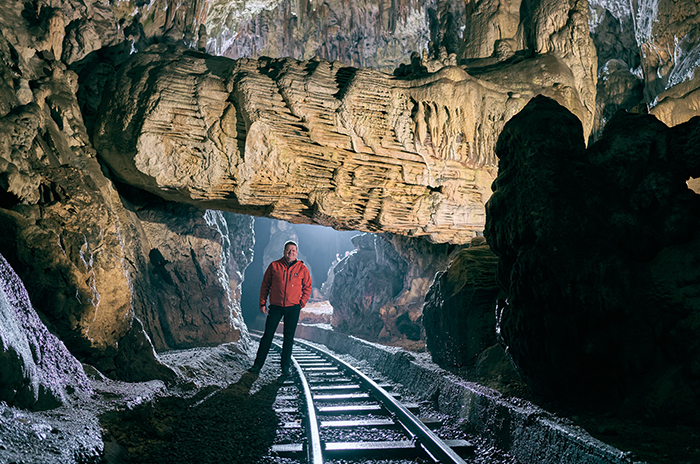


 slovenščina
slovenščina Deutsch
Deutsch italiano
italiano Hrvatski
Hrvatski français
français español
español polski
polski čeština
čeština magyar
magyar Русский
Русский Nederlands
Nederlands Português
Português 한국어 [韓國語]
한국어 [韓國語] 中国的
中国的 日本語
日本語 עברית
עברית